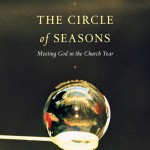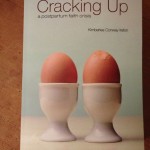
I have been thinking long and hard about why I write, about why God has called me back to this space I was on the verge of abandoning, and I’ve come up with three likely reasons. I think it’s important for all of us to think about what we do and why we do it, about what it’s for. So on this first day of a new year, I have a question for you.
But first, the reasons I think God has called me back here:
1. Wisdom.
I write my way from darkness to light, from doubt to faith, from despair to hope, from lies to truth, from not-okay to okay. Always, my writing is wiser than I am. Other, far better writers have said something similar, and I don’t claim to understand it. I only know it’s true. When I write, I access wisdom I can’t get to any other way.
While that’s a good reason to write, it doesn’t answer the question of why I put my words out for others to read. After all, I can just journal and access that wisdom. But journaling, while helpful, is sloppy. And it’s often ugly. Which brings me to my second reason:
2. Words.
I love beautiful, well-crafted language. I read poetry for fun just because of the words. Very little brings me as much delight as words aptly written. Most of my favorite people in the world are (or were) writers. And I want to hang out with them, to be one of them. I want to be part of the party, to pull up a chair at the end of the table and play, too. I want to join the conversation, and I want to be good at it, because I love the words themselves.
Which brings me right up to the third reason:
3. Community. I write for connection. I’ve said it before: words at their best are a bridge, and I want to be a bridge-builder. Did you know that the word priest comes from the Latin pontifex, which means maker of bridges? Writing, at least for me, serves a priestly function—to bridge the gap between you and me, between God and us.
Jesus is the Great Bridge Builder. And as his follower, I am to build bridges, too.
This is why I had to come back. I fought it, friends. I fight it still. The world does not need another writer. The world has too many writers already. The world is crowded with words, words, words, and only a few of them aptly written. Why must I add mine to the noise?
Almost daily I ask God, Couldn’t I feed the hungry or educate the illiterate instead? Couldn’t I plant gardens to feast the eyes and the beauty-starved soul? Couldn’t I go rescue kids from brothels or brick kilns? You know, Lord, something actually useful.
No.
Really. God said no.
And He also said yes.
It’s true that the world doesn’t need another writer. But the world desperately needs people who have come alive. And writing is how I come alive (see number one above). Words are the way I feed the hungry and teach the illiterate and feast the beauty-starved soul. Words are how I set people—starting with myself—free.
It took me a long time to see this; it’s taking even longer to believe it. Much as I love words and writers (see number two above), it’s hard to believe that my adding to the slew of words in the world is helpful. Wouldn’t it be more helpful to shut up? To add silence to a world that so desperately needs it?
Yes.
That’s part of my call, too. To be quiet. To listen. And only from that space of logophatic silence, to speak.
Reading is one way that I listen. Recently Helena Sorensen’s novel Shiloh has been speaking to my life. In that book, the people are born shining, but as they age, their light dims till it’s all but extinguished. They live in a shadowland, stalked by shadow wolves who are invulnerable to every human weapon…except fire. When they are struck by fire (pierced by light!), they turn to dust.
And that is what I want, for myself, for you, for everyone who lives shadowed by the harpies. I want to expose the harpies to the light of God’s love, God’s truth—to God (for He is light and love and truth)—and watch them turn to the dust they are and blow away on the wind.
Just like the people of Shiloh battling the shadow wolves, we cannot fight the harpies without the light of truth. The harpies don’t want us to claim our birthright as Children of the Morning, as the luminescent children of God. They even make us fear our own light—God’s light, banked in the ashes of our flesh, our forgetfulness, our fear.
But God does not forget. He remembers our glory, and He is breathing on that ember cloaked in ash, fanning it to flame with the Breath of His Spirit.
His love blazes forth like a beacon on a hill, like a campfire in a dark valley. And when we gaze back on Him with love, when we gaze on others with love, when we remember who we are, when we remember that Light shines in the darkness (as I remembered in church the other Sunday when the light broke through the clouds and shone through the stained glass as we sang “Come O Dayspring”), when we remember that as long as we breathe, the Divine Spark still ignites our souls—then we shine, too.
As kingfishers catch fire—so we catch fire. We burn but are not consumed. We become holy ground, God-bearers, Light-bearers, Love-bearers. We become the imago Dei. We become what in God’s eyes we already are.
We become ourselves.
~
My question for you on this first day of a new year: what do you do that helps you become more fully you? Or, what makes you come alive?
Photo by Gilberto Pereira, Creative Commons via Flickr.

